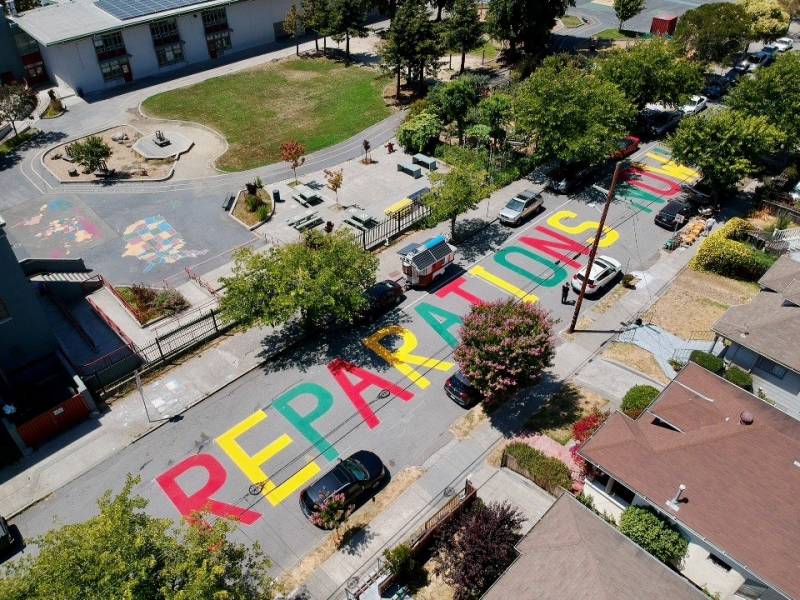In America, homeownership has historically and still is the main way to build wealth. However racism and decades of discriminatory policies and lending practices have shut Black families out of this American dream.
A disproportionate amount of Black people are homeless. They are twice as likely to live in poverty and have the lowest rate of homeownership.
That’s one of the reasons why we still see a huge wealth gap between Black and white Americans today. And some are convinced that the only way to solve that is to pay back what is owed: reparations.
KQED’s new podcast SOLD OUT: Rethinking Housing in America asks if housing can be a form of reparations that gives Black Americans the same opportunity that white Americans have always had in this country. Listen to episode four below. Read the transcript.
What does the racial wealth gap have to do with housing?
In America, white families have an average of $188,200 in wealth, compared to $24,100 for Black families. The declining homeownership rates for Black households is what contributes to this widening wealth gap. In the second quarter of 2020, 47 percent of Black families owned their home compared with 76 percent of white families, according to the U.S. Census Bureau.
For a lot of families, owning a home is a sign of stability and a critical stepping stone to building equity and wealth. Owning a home is directly connected to a person’s overall net worth, especially when the asset can appreciate and grow in value over time. That means the average white family has eight times the wealth of the typical Black family.
How did it get this big?
Historically, the American housing system has a long legacy of excluding Black families beginning with the founding of this country. Two hundred fifty years of slavery; then, there was sharecropping and Jim Crow laws, and redlining and predatory lending.
And even though the discriminatory policies are now outlawed, their effects still linger. A recent Zillow analysis found lenders deny Black mortgage applicants at a rate of 80% higher than white applicants, a troubling pattern that’s been called modern-day redlining.
Black homeownership rates rose in the 1990s and 2000s, but a lot of that progress was reversed by the subprime mortgage crisis. The foreclosure rate for Black households was more than twice what it was for white households. The foreclosures often forced Black families into renting, erasing any wealth they had built.
Even when Black people do own homes, the houses in majority-Black neighborhoods are undervalued by $48,000 per home on average, according to research from the Brookings Institution.
